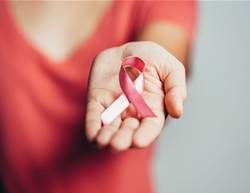Despite all the money and time researchers have devoted to the study of breast cancer recurrence, predicting when and why the disease might resurface is still largely a guessing game.
Professionals are getting an understanding of how breast cancer might reoccur, though. As the primary cancer is treated, so-called "seed cells" can migrate out of the breast to other parts of the body. Wherever those seeds end up, the cancerous cells can lie dormant—sometimes for years—before triggering a new and often aggressive outbreak of the disease.
While experts are still sorting out the exact mechanisms underlying recurrence, research has begun to sift out those lifestyle changes and behaviors that lower your risks—and those that don't seem to make much difference.
"There are things women hear about that are supposed to help but aren't necessary," says Dr Ellen Warner. She cites avoiding dairy, carbohydrates and soy as examples of behaviors that barely move the needle or don't help at all.
"Soy, if anything, is a good thing," Warner adds. While there's not enough evidence to recommend packing your diet with edamame and tofu, some of the latest research shows soy proteins and compounds may lower your risk for breast cancer recurrence.
Also, while there are some great reasons to opt for organic foods, Warner says preventing breast cancer recurrence doesn't appear to be one of them. And she would know. She coauthored a recent review study on lifestyle modifications that do and do not lower a cancer survivor's risk for a relapse.
Based on Warner's review and some other new research, here are all the things you CAN do to prevent breast cancer from coming back again.







Move your body.
Regular exercise—at least 2 ½ hours a week—is "the most importance lifestyle factor" when it comes to decreasing your risk for recurrence, Warner says. Unfortunately, just 13% of U.S. breast cancer survivors meet that weekly goal.
It may be difficult to summon the energy for exercise after a grueling bout with cancer. But because exercise lowers inflammation and levels of hormones linked with recurrence, it appears to be your best defense against having to fight a second round.
Maintain your weight.
Losing weight, while often a healthy change, has not been firmly linked to a lower risk for breast cancer recurrence, Warner says. But there is good evidence that avoiding weight gain and adopting a healthy diet during and after breast cancer treatment may offer some protections.
Other experts agree. "Women who are overweight and or obese have a higher risk of recurrence than those who maintain a healthy body weight," says Dr Elisa Port.
Avoid drinking too much.
"Drinking in moderation"—that is, up to three or four drinks per week—"is probably reasonable and safe," Port says. But drinking every day should be avoided, she adds.
A 2016 study in the International Journal of Cancer found survivors who downed more than one drink per day were 28% more likely to suffer a recurrence.
Take your prescribed meds.
"Being compliant with medications that have been prescribed is critically important to giving a woman the lowest possible risk of recurrence," Dr. Port says.
Multiple studies have shown anti-oestrogen agents and aromatase inhibitors can block breast cancer from coming back. But because of side effects and other factors, a lot of women stop taking these meds, or don't take them as prescribed, Port says.
Get more C and D.
While the evidence to support vitamin supplementation isn't as strong, Warner's review found taking a vitamin C supplement may reduce breast cancer mortality rates. Low levels of D are also linked with worse cancer outcomes, and so taking a D supplement may be beneficial—though again, the research on this isn't conclusive. (To get more C in your diet, eat these 9 foods with more vitamin C than an orange.)
Change your eating patterns.
More and more evidence is piling up that intermittent fasting, or taking extended breaks from food, can provide bigtime health benefits.
While the evidence is preliminary, one 2016 study in JAMA Oncology found breast cancer patients who stayed away from food for 13 hours or more each day enjoyed a significant drop in recurrence risk compared to women who didn't fast. It's easier than it sounds: Basically, you put 13 hours or more between your last bite of food at night and your first the next day. Stop all eating by 8 PM, and you can have breakfast the next morning at 9 and still meet the study's fasting requirements.
Sip green tea.
Again, the research is incomplete. But women diagnosed with early stage breast cancer who drink a lot of green tea—three or more cups a day—seem to be better protected against a recurrence than those who don't drink green tea. One Japanese study found a significant drop—31%—in recurrence risk among green tea-drinking women. That said, it's not clear whether upping your green tea habit post-diagnosis offers any protection.










